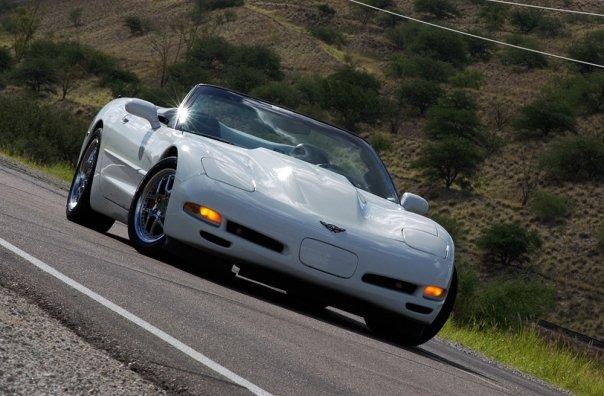High-income debt: Why high income earners still struggle to build wealth
High income debt ravages our culture. I worked a 14-year career in information technology. Our salaries were high. It seemed easy for us to get rich.

As adults, it's funny to think about the things that we believed as kids. We took a very literal perspective of the world. No gray area. Things we saw, experienced and felt were gospel, through and through.
For me growing up, I believed in a simple financial construct: The more money that you earned, the more money you had.
In other words, I believed that a high-income had a 1-to-1 correlation to wealth. Rich people were rich because they earned high incomes.
As it turns out, this isn't necessarily the case. Life isn't that simple.
I worked a 14-year career in information technology. Our salaries were high. To most of society, it was "easy" for us to save and get rich.
Why, then, did the large majority of my coworkers work jobs well into their 50s and 60s after decades earning near (or at) upper-class wages, usually complaining about their jobs every step of the way?
If it's so easy for high-income earners to get rich, why aren't they?
According to a Nielsen study, 25% of families making $150,000 a year or more are living paycheck-to-paycheck. One in three earning between $50,000 and $100,000 need their next paycheck to survive. For those earning less than $50,000, that percentage increases to half.
That's not a big difference, folks.
When I first began researching these numbers, I assumed maybe 5 or 10% of high-income earners live paycheck-to-paycheck. In other words, there'd be some outliers, but the majority are probably doing just fine.
However, the numbers paint a very different picture.
Make no mistake about it: As we earn more money, our savings potential increases. But, that doesn't mean our savings rate will increase.
It also doesn't mean we are getting rich.
In fact, high salaries are deceptive. They make us feel rich, but many of them come with an expectation that spending money earns money (more on this later).
Earning high salaries have a way of boxing us into a lifestyle that systematically drains us of the large majority of our wealth, often through debt. We believe that we're rich, and therefore, we spend accordingly.
We live in high cost of living areas in nice homes and drive expensive exotic import cars because our salaries - at least on paper, support that level of spending. We spend because we can.
The high-income savings struggle
Throughout my career, I never struggled with income. In fact, my starting salary right out of college in 2005 was $55,000 a year. By the end of my career some 14-years later, I was pulling down around $130,000 including bonuses.
Earning that type of money was interesting. Naturally, most people thought I was rich. That I had it all. They assumed I never worried about money and could buy virtually whatever I wanted.
And, I damn near came close to doing just that!
I never believed I was super rich, so I didn't kid myself into believing that I could afford a Ferrari. However, I did plop down half of my first year's salary to buy a Corvette.

I proceeded to supercharge that car. I spent around $20,000 over the next several years making that car one of the fastest and loudest cars around. Why? I certainly didn't need that car.
I did it because I could. All because I had a salary that supported that level of spending. Or, at least I thought it did.
Unfortunately, my income was supporting my spending, but I wasn't getting more wealthy. I was quickly becoming a member of the pseudo-affluent society that shows wealth, but don't actually have wealth.
A couple of the best graphics I've seen about this "fake wealth" come from Zack Van Zant who mapped the average Joe's savings level relative to income and perceived "needs".
To the average Joe, savings rates increase marginally as our lifestyle - along with our income, increases substantially.

The average Joe is in contrast to the "Extraordinary Joe's" savings level, who resists the temptation to increase perceived needs along with income:

Let's take a look at a couple of examples of how high-incomes aren't making people rich.
Debt plagues doctors
A high income doesn't necessarily make us extraordinary Joes. The medical field is an excellent example of high-income careers. But, not all doctors enjoy a lifetime of financial security.
Doctors are saddled with debt. Most of that debt results from the high cost of medical school, but that's only just the beginning.
"When I started out with a net worth of negative $208,000 at the end of training," a doctor who blogs at The Physician Philosopher told me, "one of the most helpful things was realizing that the panhandler on the street or the toddler with a few dollars in their piggy bank (and no debt to their name) is wealthier than I was."
Big debts eat away big salaries. This doctor understood that although his salary was high, his med school debt prevented financial security.
And, too many high-income doctors don't just pay off their student loans and build wealth from there. Instead, many continue to amass debt.
Why? "There is pressure to keep up with the Dr. Jones," The Physician Philosopher said.
"Many doctors do face this pressure and cave into buying a nice house in a nice part of town too early in their career. You’d be shocked how many physicians live paycheck to paycheck."
Despite a high level of medical education, financial literacy isn't a part of most medical curriculum, and many doctors feel a sense of "spending entitlement" after putting in years of expensive training.
"The time spent getting all of that training does make physicians feel like they “deserve” to spend a lot of money on nice things."
To high-income earners who spent many years in school, the tendency to amass debt and expensive lifestyles because they worked so hard (and long) in school is common.
The problem doesn't stop with doctors.
Business executives "live the part"
Like doctors, business executives live and operate within a culture that's driven by high incomes. Promotions and additional levels of responsibility in business bring with it an expectation of success.
And more specifically, looking successful.
I chatted with one executive who writes about financial independence in a high-income career at Stop Ironing Shirts. The expectation that high level executives "act the part" is a very real part of the job.
"When I got into the realm of making $200k+year, that job carried a "President" title and many of my peers feel the need to drive fancy cars, buy expensive watches, and join high-priced country clubs."
His boss maintains several different homes, a couple purely for entertainment purposes. They drive expensive cars, wear costly suits and live in ritzy markets where their customers are.
"Think about jobs like large law firms, accounting firms, investment banks, commercial banking," he told me. "They all sell/offer a near commodity service then it becomes about “Deal flow”. How many deals can you look at? This requires these employees to run in circles of people that are much wealthier than they are."
The culture devolves into a wicked cycle of consumption, fueled through the drive to be "successful" and earn more money. Through this reinforcement, executives are conditioned to believe that high consumption lifestyles - enabled through a high income, are expected. Necessary.
And in some ways, like in the case of this executive, looking successful is an implied requirement to continue building high-income careers.
It's a snowball that feeds on itself.
5 primary causes ofhigh-income debt
Lifestyle inflation
Lifestyle inflation gets us all. We start making more money and, in turn, we begin spending the majority of that extra dough. We count our bonuses as a part of our salary. We fund expensive vacations and huge purchases through all that "extra" money that we make.

As our incomes increase, so do our lifestyles.
What's the problem with that? If we spend the majority of the extra money that we bring in, we trap ourselves into a position where we NEED that extra money, year after year, just to maintain the lifestyle that we built over the previous year.
We earn extra money, but we don't "have" extra money. We spend it.
What happens to our lifestyle after that income stops?
Looking the part
As high-income earners, we feel a need to look like we're rich. After all, rich people don't drive around in Civics and Corollas, do they?
Actually, they do.
But, it takes a tremendous amount of discipline to curb our spending when the money is right there. Wearing expensive suits and driving nice cars make us appear successful.
And, sometimes we buy these high-priced cars simply to paint a carefully-manicured picture of what we want society to believe. Believe about us. For many, looking successful is an implied requirement for being successful.
What if we drive up to a client meeting in a beat-up, 1995 Camry? Will our clients think less of us? Do we appear less successful, less intelligent or less influential if we drive a normal car rather than an expensive import?
The "I deserve it" trap
Many high-income earners worked their tails off to get into the position of earning a ton of cash. Lots of education. Long nights and weekends. We're on-call as doctors. We're under insane deadlines as tech staff. We work hard. Shoulder mountains of stress.
Through all this stress and sweat, we naturally want to reward ourselves for all that work. That time away from our families.
And, how about the years of school it took to build a high-income career? We put in a lot of work to make it into this position. And naturally, we want to reward ourselves for it.
After all, that's why we worked so hard to begin with, right?
A "just reward" for years of hard work and education.
High-income optimism
Hello, sports fans!
When we're making great money, we're conned into believing that it'll never end. Just look at former NBA star Allen Iverson who went bankrupt after racking in $150 million over his basketball career.
Or Tennis star Boris Becker after earning over $125 million.
How about Mike Tyson's squandered fortune of over $300 million?
Although these are high-profile examples, high-income optimism effects almost all of us. We build a lifestyle around high incomes with the optimistic assumption that nothing will change.
We believe that we'll always earn that type of money.
In reality, that's just not true. Most of us can't simply work until we die. We need some sort of retirement. It's fun to spend money while we're earning it, but that high income won't always be there.
The high-income savings potential
Those of us who earn high incomes have high savings potential. But, that also doesn't mean it's easy for us to save. We get conned into believing that we're rich because we earn big money.
Many business industries are designed around perception, and if we aren't driving up to client meetings in a new 7-series Bimmer, then we aren't worth talking to. We are not successful enough.
Education debt destroys financial security in high-income careers if we begin spending the majority of our income too soon. After all, the Dr. Jones's are driving high-priced cars and living in big homes.
Why can't I?
What's the moral of this story?
Don't believe that it's suddenly easy to get rich simply due to a high-income. The available potential is there, but unless we escape the draining culture of "spending = success", nobody is getting rich.
And, nobody is retiring early.
And lastly, it's all very preventable.
Do you earn a high salary? What's the biggest stressor in your financial lifestyle that prevents you from saving more cash?